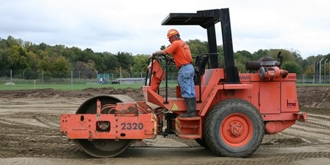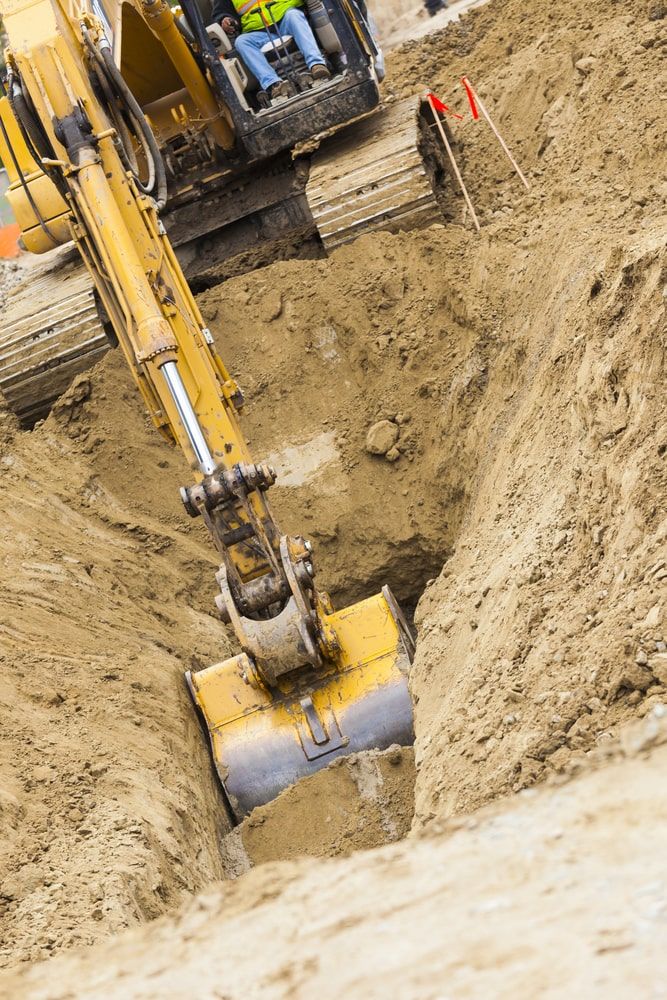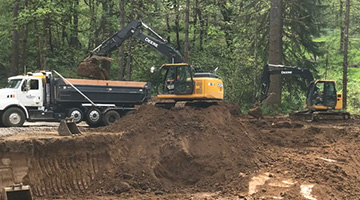Septic Ohio - Comprehensive Septic System Solutions in Ohio
Wiki Article
Comprehensive Excavation Methods: Understanding the Principles for Success
In the realm of building and construction and civil engineering, the significance of effective excavation techniques can not be overemphasized. The cautious preparation, exact implementation, and meticulous focus to detail needed in excavation projects require an extensive strategy that includes different fundamental facets. From preliminary dirt analysis to the implementation of precaution and normal progression tracking, mastering these core components is crucial for attaining success in any type of excavation venture. The true proficiency lies not simply in understanding these basics however in perfectly integrating them to navigate the intricacies of excavation projects with skill.Recognizing Excavation Project Planning

Effective excavation tasks are developed on the structure of comprehensive and precise preparation. The initial phase of any kind of excavation project is the drawing board, where vital decisions are made that can considerably impact the outcome of the project. During this phase, it is important to gather all pertinent info concerning the site, consisting of topographical studies, soil make-up, and any kind of prospective hazards that may exist. Understanding the task timeline, budget, and range restrictions is critical for creating a detailed excavation strategy that makes certain the project's success.
One key aspect of excavation job preparation is the growth of an in-depth timeline that outlines the series of due dates, turning points, and activities. This timeline acts as a roadmap for the task team, permitting them to track development and make necessary modifications to ensure the job remains on timetable. In addition, a distinct budget that accounts for all expenses, including devices rental, labor expenses, and materials, is crucial for avoiding cost overruns and delays. By very carefully thinking about all these aspects throughout the drawing board, excavation tasks can be performed successfully and properly, bring about successful outcomes.
Soil Evaluation and Website Examination
Carrying out detailed soil analysis and site evaluation is an important step in the preparation stage of any type of excavation job. Soil evaluation entails establishing the make-up, structure, and properties of the soil at the excavation website. This information is crucial for recognizing the dirt's bearing capability, wetness web content, and possibility for erosion, which are crucial consider determining the excavation techniques and tools required for the project.Website examination exceeds dirt evaluation and includes a more comprehensive assessment of the overall website problems. This evaluation includes determining any type of possible threats, such as below ground energies, ecological issues, or unpredictable terrain, that might affect the excavation process. By completely examining the site, job supervisors can establish effective excavation approaches that prioritize security, performance, and environmental protection.
Using sophisticated technologies like ground-penetrating radar, soil sampling, and drone studies can improve the accuracy and performance of dirt evaluation and site evaluation. Spending time and sources in these preliminary look at this site steps can inevitably save time and protect against costly hold-ups or problems during the excavation procedure.
Tools Selection and Use
Effective excavation tasks depend heavily on calculated equipment choice and utilization to guarantee optimum performance and efficiency. Picking the ideal equipment for the task is important in maximizing performance and decreasing downtime. Elements such as the type of soil, deepness of excavation, and job range play a considerable function in establishing the most appropriate equipment for the job available.
In enhancement to choosing the appropriate equipment, proper application is crucial to project success. Operators must be trained to deal with the tools securely and effectively - dump truck companies in ohio. Regular upkeep checks and prompt repair work assist avoid malfunctions and guarantee regular performance throughout the project
Precaution and Laws Compliance
In the realm of excavation projects, focusing on safety procedures and conformity with regulations is vital to ensuring a legitimately sound and protected functional environment. Precaution incorporate a variety of methods, including carrying out thorough website assessments, applying appropriate signage and obstacles, and supplying ample safety and security training for all workers associated with the excavation process. Adherence to laws, such as OSHA needs in the United States, guarantees that the excavation job satisfies the needed requirements to secure employees, bystanders, and the surrounding environment.
Tracking Progress and Adjusting Techniques
How can project managers effectively track the innovation of excavation tasks and adapt their techniques appropriately to maximize results? Monitoring development is necessary for making sure that excavation jobs stay on track and meet target dates. Project managers can utilize numerous tools and strategies to track progression, such as everyday progress records, regular site evaluations, and progressed tracking technologies like dig this drones and general practitioners tracking systems. By constantly keeping an eye on the job's improvement, supervisors can determine any prospective delays or issues early and take proactive procedures to address them.
Verdict
Finally, mastering the basics of detailed excavation methods is vital for the success of any task. By recognizing job planning, analyzing dirt and website problems, choosing suitable devices, abiding with security regulations, and checking development, task managers can guarantee a efficient and smooth excavation procedure. Implementing these methods will certainly cause successful results and decrease prospective risks or troubles throughout the excavation project.
The preliminary stage of any type of excavation project is the preparation stage, where essential decisions are made that can significantly affect the end result of the job. Recognizing the project timeline, spending plan, and scope constraints is vital for creating an extensive excavation plan that ensures the job's success.
Exactly how can predict supervisors effectively track the innovation of excavation projects and adapt their methods as necessary to maximize outcomes? By carefully keeping track of development and being ready to adjust approaches, project supervisors can boost the total success of excavation jobs.
By comprehending job preparation, analyzing soil and site problems, selecting appropriate equipment, abiding with safety regulations, and keeping an eye on development, job managers can make sure a efficient and smooth excavation process.
Report this wiki page